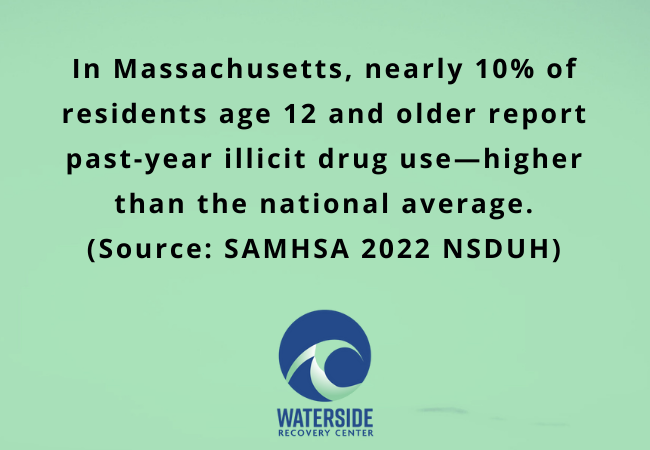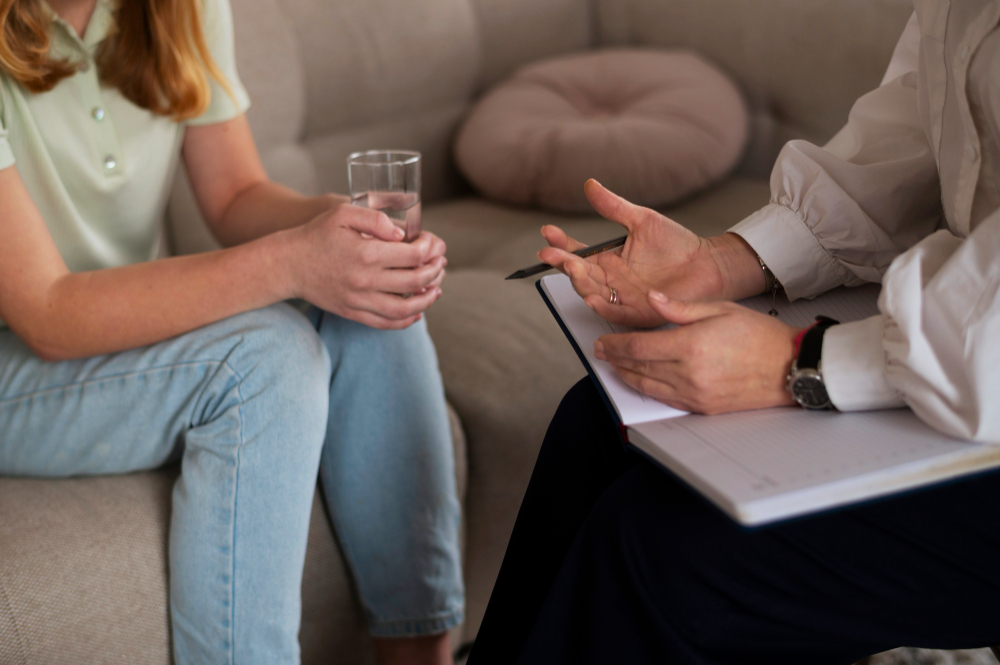Recovery from addiction is a gradual process that evolves through various stages of care. One of the most important transitions you’ll face is moving from a Partial Hospitalization Program (PHP)—commonly known as day treatment—to an Outpatient Treatment Program (OP). While this shift reflects progress, it also introduces new responsibilities, risks, and opportunities for growth.
At Waterside Recovery, a premier Massachusetts addiction treatment center, we guide individuals through every step of their recovery journey—from intensive care to long-term independence. In this guide, we’ll walk you through what to expect during the transition from PHP to outpatient treatment, what challenges may arise, and how to make the most of this critical phase in your recovery.
What Is a Partial Hospitalization Program (PHP)?
A PHP is a structured, high-intensity level of care designed for individuals who:
- Have completed detox or residential rehab
- Are medically stable but still require daily therapy and support
- Benefit from a structured routine with clinical supervision
At Waterside Recovery, our Partial Hospitalization Program in Massachusetts typically includes:
- 5–6 hours of clinical services per day, 5–6 days per week
- Group therapy, individual counseling, and psychiatric care
- Medication management and holistic therapies
- Relapse prevention and life skills development
PHP acts as a bridge between inpatient and outpatient treatment, offering the intensity of rehab with the flexibility of returning home each night.
What Is Outpatient Treatment?
Outpatient treatment is a less intensive, more flexible level of care for individuals who:
- Are medically and emotionally stable
- Can manage daily responsibilities with minimal supervision
- Are ready to apply the tools they’ve learned in real-world environments
Our Outpatient Treatment Program in Massachusetts includes:
- 1–3 therapy sessions per week (individual, group, or family)
- Flexible scheduling to accommodate work, school, or caregiving
- Ongoing relapse prevention, case management, and medication support
Outpatient care offers continued accountability and growth, allowing clients to build a life of recovery with more independence.
What to Expect When Transitioning from PHP to Outpatient Care
1. A Change in Structure
In PHP, your days are filled with therapeutic activities, medical check-ins, and peer support. In outpatient care, your time is less structured, which means:
- You’ll have more unstructured hours and greater autonomy
- You’ll need to proactively schedule recovery-based activities
- Building a consistent routine becomes your responsibility
“Outpatient care is where the real test begins—it’s where you prove to yourself that you can manage freedom while staying focused on recovery.”
2. A Stronger Emphasis on Self-Management
You’ll be expected to:
- Apply coping strategies in real-life settings
- Recognize and manage your relapse triggers independently
- Initiate communication with your care team when challenges arise
This phase builds resilience, decision-making skills, and personal accountability.
3. Maintaining Connection with Support Systems
Although you’ll no longer attend therapy daily, you’ll continue to:
- Participate in weekly or biweekly sessions
- Stay involved in peer support groups or alumni communities
- Keep in contact with your therapist, sponsor, and sober supports
Keys to a Successful Transition
The move from PHP to outpatient care is a vulnerable period. Here’s how to navigate it successfully:
1. Build a Recovery-Focused Weekly Routine
Structure is still vital—just less enforced. Consider:
- Morning rituals: Meditation, journaling, or reading affirmations
- Set therapy days: Keep sessions on a consistent weekly schedule
- Daily health goals: Exercise, meal prep, hydration, and sleep
- Recovery time: Attend support groups and engage in sober activities
2. Identify Personal Triggers & Red Flags
Use what you learned in PHP to:
- Recognize emotional and environmental triggers (stress, old friends, social events)
- Track emotional warning signs like irritability, isolation, or negative thinking
- Communicate early with your care team when challenges arise
3. Use the Support Network You’ve Built
Recovery is not something you should do alone. Continue to:
- Attend 12-step meetings, SMART Recovery, or other support groups
- Meet with your therapist to adjust goals and revisit strategies
- Reach out to a trusted sponsor, mentor, or peer when you need perspective
Common Challenges During the Transition—and How to Overcome Them
| Challenge | Solution |
|---|---|
| Losing structure | Build a daily schedule and stick to it—use reminders and goal-setting tools |
| Overconfidence and underestimating risk | Stay humble. Keep attending therapy and check-ins regularly |
| Isolation or lack of social support | Join recovery groups or alumni programs to stay connected |
| Exposure to triggers at home or work | Use coping tools like breathing, journaling, and calling your support team |
How to Rebuild Routine and Responsibility in Outpatient Care
One of the biggest changes when transitioning from PHP to outpatient care is the return to daily responsibilities. Without the full-day structure of PHP, individuals must relearn how to balance recovery with everyday life—work, school, family, and personal growth.
Tips to Rebuild Structure and Stability:
-
Create a weekly planner that includes therapy, support meetings, fitness, meal prep, and leisure.
-
Establish a consistent sleep schedule to boost energy and emotional regulation.
-
Communicate with employers or educators about your schedule and support needs.
-
Use your recovery tools daily—journaling, mindfulness, coping skills—to stay anchored.
This phase is all about reclaiming your independence while staying grounded in your recovery practices.

Leveraging Community Resources for Continued Recovery
As you gain independence in outpatient care, it’s essential to expand your recovery support beyond the treatment center. Massachusetts offers a wide range of community resources designed to empower individuals in early recovery.
Helpful Resources to Consider:
-
Recovery Support Centers across Massachusetts offer peer coaching, career workshops, and wellness activities.
-
12-Step Groups and SMART Recovery meetings are available in-person and online for ongoing peer connection.
-
MassHealth and local health departments offer assistance with housing, job placement, and recovery coaching.
-
Sober living homes can provide transitional support if you need structure outside your home environment.
Why Choose Waterside Recovery for Step-Down Care?
1. Seamless Continuity of Care
We guide you through every step—from detox to PHP to outpatient—ensuring no gaps in support or therapy. Our team collaborates to create a customized step-down plan based on your progress, needs, and long-term goals.
2. Holistic Recovery Model
Our treatment plans incorporate both clinical expertise and holistic wellness, including:
- CBT, DBT, and trauma-focused therapies
- Medication-Assisted Treatment (MAT) for opioid or cocaine addiction
- Yoga, mindfulness, nutrition therapy, and exercise
3. Long-Term Aftercare and Alumni Support
We help you maintain momentum through:
- Alumni events and sober living referrals
- Ongoing outpatient therapy and relapse prevention
- Family support services to rebuild healthy relationships
Conclusion
The transition from day treatment to outpatient care is not the end of your recovery—it’s the beginning of a new chapter. With increased independence comes new responsibilities and new opportunities. At Waterside Recovery, we make sure you’re not facing these changes alone.
Whether you’re dealing with opiate addiction, cocaine use, or other substance challenges, we offer the expertise, structure, and compassionate care you need to thrive. From your first day in treatment to the moment you reintegrate into everyday life, we are here for you. Call us today at 866.671.8620 to learn how our outpatient care can help you sustain recovery, rebuild your life, and embrace your future.
Frequently Asked Questions (FAQ)
Why is transitioning from PHP to outpatient care important?
This transition marks a milestone in recovery—a move toward greater independence. It allows individuals to apply what they’ve learned in PHP while still receiving clinical support through therapy, relapse prevention, and case management.
How do I know I’m ready for outpatient care?
You may be ready to step down if:
-
You’ve successfully managed cravings and triggers in PHP.
-
You have a stable living environment.
-
You’ve developed coping strategies and built a support network.
-
You’re motivated to take on real-world responsibilities like work or school.
What’s the difference between PHP and outpatient treatment?
-
PHP (Partial Hospitalization Program): ~30 hours/week of therapy and support
-
Outpatient Treatment Program (OP): ~3–6 hours/week, more flexible
Outpatient treatment supports individuals who are ready to reintegrate into daily life but still need structured recovery guidance.
Will I still have access to therapy and medical care in outpatient?
Yes. At Waterside Recovery, our outpatient program includes:
-
Individual and group therapy
-
Psychiatric consultations and medication management
-
Relapse prevention and skill-building sessions
What if I feel overwhelmed after stepping down from PHP?
That’s normal. We encourage:
-
Maintaining regular therapy appointments
-
Reaching out to sponsors or support group peers
-
Attending alumni and relapse prevention groups
You’re never alone—we’re here to support you every step of the way.


